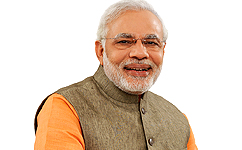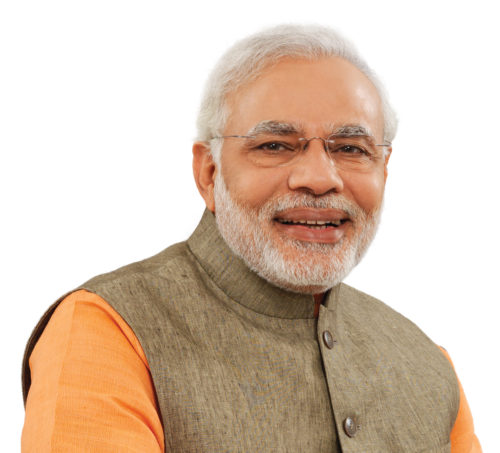New Delhi– Marking a major leap towards enforcing a unified tax regime in the country, Parliament on Monday gave its nod to the constitutional amendment bill on a Goods and Services Tax (GST) in what is seen as the most radical indirect tax reform since Independence.
The Lok Sabha voted for the second time on the measure in little over an year it had first cleared the enabling legislation in 2015.
The lower house of parliament had to take up the bill yet again after the Rajya Sabha, where the bill had been languishing since then as the government did not have a majority in the house, gave its nod with few vital amendments on August 3.

Prime Minister Narendra Modi was present in the Lok Sabha when the bill was passed as were Finance Minister Arun Jaitley and other senior ministers Rajnath Singh, Nitin Gadkari, Sushma Swaraj and BJP patriarchs L.K. Advani and M.M. Joshi.
Making a departure, a jovial mood prevailed in the house even while the amendments and the bill was taken up for voting.
As it was a Constitutional amendment bill, division of votes was also mandatory.
“The motion is adopted by the majority of the house and not less than by the two-third of the majority of the house as required by the Constitution,” Speaker Sumitra Mahajan announced every time at the end of division voting.
After its passage and the chair announced adjournment of the house, treasury bench members and Union ministers were seen greeting each other.
Intervening during the nearly six-hour debate on the bill, Modi said the GST bill will go a long way in helping states, support small entrepreneurs and also curb the menace of corruption.
Expanding GST as “Great Step by Team India, Great Step towards Transformation and Great Steps towards Transparency”, he said that it will be an important step towards getting the country rid of “tax terrorism” and also make “consumers the king”.
He asked Jaitley to ensure that 16 states ratify the bill at the earliest and also that adequate steps are taken to ensure early passage of the draft legislation on integrated GST, the central GST and the state GST.
The government will be targeting April 1, 2017 (the next financial year) for the roll out.
Replying to the debate, Jaitley said that the uniform tax law will India make an “integrated market and once it is enforced, “doing business in this country will become easier”.
He also said demand for reducing indirect taxes and hiking direct taxes is not practical.
Jaitley hit out at the Congress, saying the 18 per cent cap on GST rate was suggested by the party only after the bill was passed in the Lok Sabha.
Leader of the Congress in the Lok Sabha Mallikarjun Kharge took a dig at Modi, saying he had opposed the bill as Gujarat Chief Minister.
“We were the creators of the GST. We were the first to bring the GST. We support it. Those who are passing the GST now, why were they opposing it when they were in the opposition?
“Had they agreed to our conditions on the GST earlier, the delay wouldn’t have happened,” he said.
The Constitution (One Hundred and Twenty-Second Amendment) Bill, 2014 and amendments (carried out by Rajya Sabha) were declared approved by a two-thirds majority with 443 members voting in its favour and none against.
Tamil Nadu’s ruling AIADMK, which had staged a walk out in the Rajya Sabha, did so in the Lok Sabha also.
The amendments to the government bill, as passed by the Rajya Sabha, moved by Revolutionary Socialist Party’s N.K Premchandran were also negated by voice vote, while six amendments including one on scrapping of additional tax moved by the government as amended by the Rajya Sabha were passed.
The government had moved amendments in the Rajya Sabha to the bill to accommodate concerns of opposition, notably the Congress, scrapping the proposed levy of 1 per cent additional duty to compensate states for at least two years and make the dispute resolution mechanism stronger, but the third demand – of specifying the GST rate in the bill itself – was not acceded to.
The new tax regime — the idea for which was mooted in 2003 — seeks to subsume all central indirect levies like excise duty, countervailing duty and service tax, as also state taxes such as value added tax, entry tax and luxury tax, to create a single, pan-India market.
It was however seven years later that a formal bill was first introduced, but this lapsed when the United Progressive Alliance (UPA) was voted out.
In 2014, a recast bill was introduced in the Lok Sabha on December 19, and was passed by it five months later on May 6, 2015. The bill was then referred to a Select Committee of the Rajya Sabha for examination which submitted its Report on July 22, 2015. (IANS)







